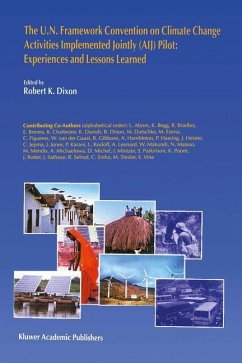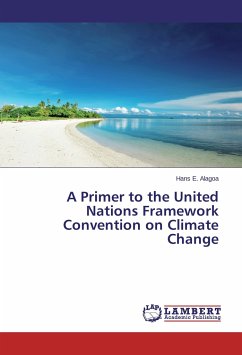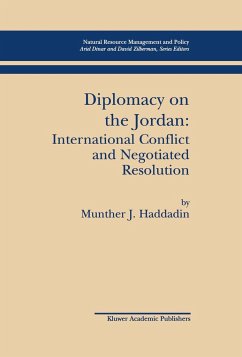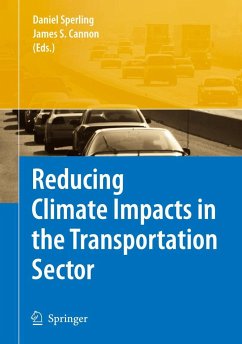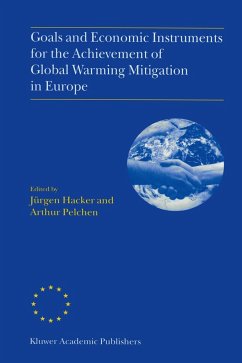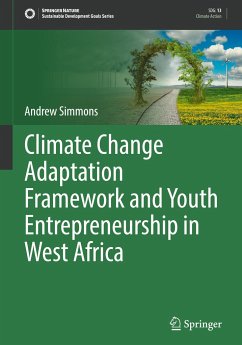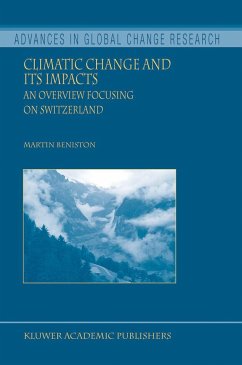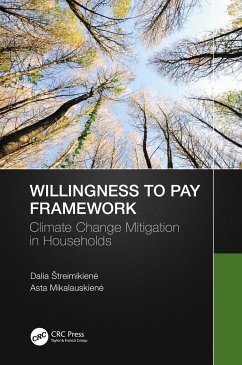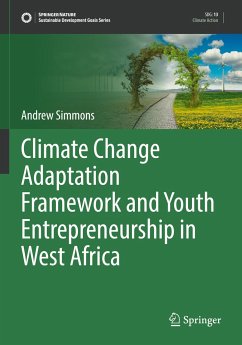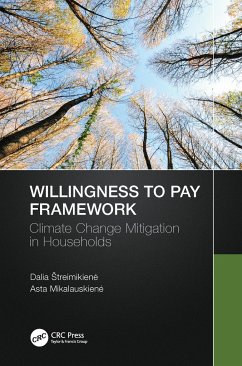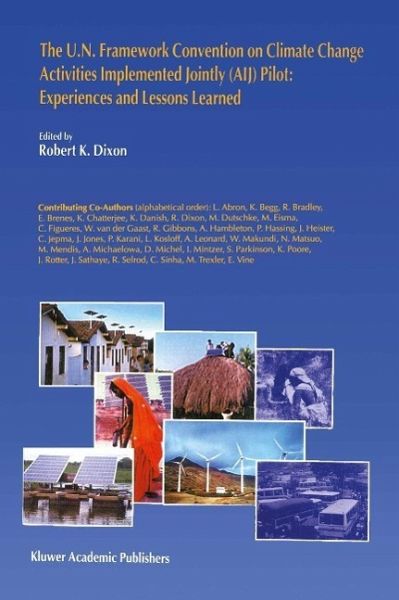
The U.N. Framework Convention on Climatic Changeactivities Implemented Jointly (Aij) Pilot
Experiences and Lessons Learned
Herausgegeben: Dixon, Robert K.
Versandkostenfrei!
Versandfertig in 6-10 Tagen
61,99 €
inkl. MwSt.

PAYBACK Punkte
31 °P sammeln!
This book is the first comprehensive, in-depth review and summary of the U.N. FCCC AIJ pilot. Over 30 prominent players in the U.N. FCCC AIJ pilot, drawn from 12 countries, prepared the 16 peer-reviewed chapters in this book. Most chapters are extensively illustrated and the book contains a glossary of acronyms and a list of points of contact in the U.N. FCCC AIJ pilot. To help meet the technical and policy needs associated with the U.N. FCCC and complementary treaty negotiations, this book has three broad objectives: review, interpret and compile experiences of AIJ pilot participants and obse...
This book is the first comprehensive, in-depth review and summary of the U.N. FCCC AIJ pilot. Over 30 prominent players in the U.N. FCCC AIJ pilot, drawn from 12 countries, prepared the 16 peer-reviewed chapters in this book. Most chapters are extensively illustrated and the book contains a glossary of acronyms and a list of points of contact in the U.N. FCCC AIJ pilot. To help meet the technical and policy needs associated with the U.N. FCCC and complementary treaty negotiations, this book has three broad objectives: review, interpret and compile experiences of AIJ pilot participants and observers; based on empirical data and skilled observations, identify and document lessons learned from the AIJ pilot; and, interpret, summarize and translate lessons learned for future consideration by FCCC parties.
Specific topics covered in this book include an introduction to the AIJ pilot and the FCCC guidelines/criteria, AIJ project development and finance, the project development community, an overview of energy and land-use and forestry sector projects, sustainable development, technology transfer, human and institutional capacity building, legal issues, and project monitoring, verification and reporting. This volume will be of interest to the generalists familiar with FCCC issues and negotiations but explores most topics in sufficient technical and policy depth to be must reading for policy analysts, diplomats, environmental protection specialists, scientists, engineers, project developers, attorneys, economists, development workers, foresters, and energy specialists.
Specific topics covered in this book include an introduction to the AIJ pilot and the FCCC guidelines/criteria, AIJ project development and finance, the project development community, an overview of energy and land-use and forestry sector projects, sustainable development, technology transfer, human and institutional capacity building, legal issues, and project monitoring, verification and reporting. This volume will be of interest to the generalists familiar with FCCC issues and negotiations but explores most topics in sufficient technical and policy depth to be must reading for policy analysts, diplomats, environmental protection specialists, scientists, engineers, project developers, attorneys, economists, development workers, foresters, and energy specialists.



